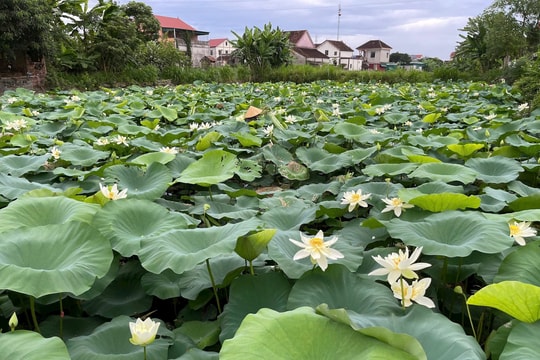Ensuring safe meals from the farm: Nghe An deploys many solutions
The story of "being afraid of eating anything, worrying about buying anything" does not stop at coffee shops and traditional markets but has been brought straight to the Provincial People's Council at the 31st session, 18th term, 2021 - 2026 term.
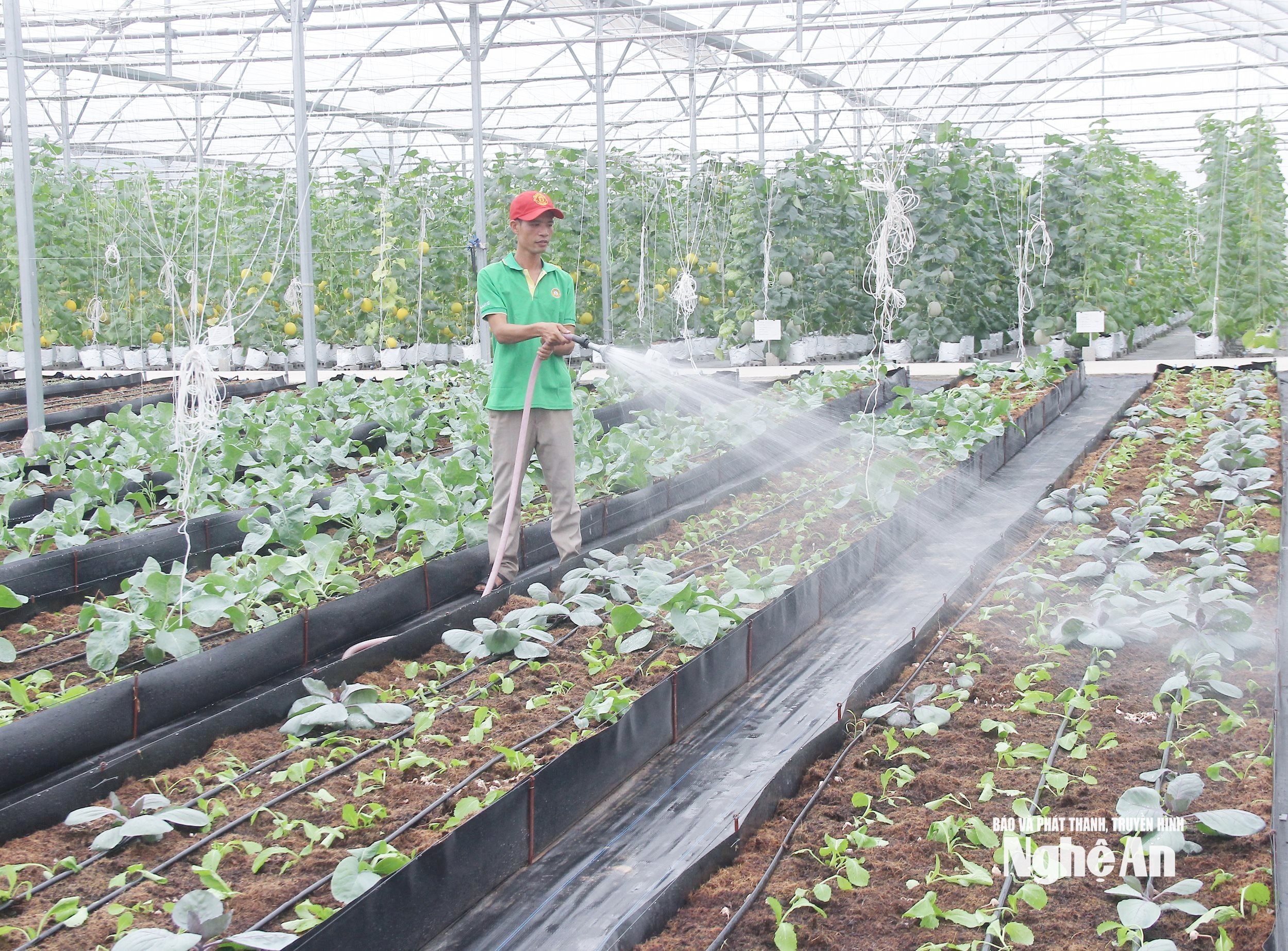
Close to people's lives
It is no coincidence that the question-and-answer session at the 31st session of the Nghe An Provincial People's Council, which took place in early July 2025, heated up with the topic of food safety and hygiene. This is the top concern of voters and people. The concerns and frustrations that have lasted for many years of consumers "not knowing what is clean food and what is dirty food", were frankly brought to the floor by the Provincial People's Council delegates Chu Duc Thai and Nguyen Cong Van.
Voters and people are excited when their everyday voices, worries about every meal, and insecurities about bunches of vegetables, fish, and pieces of meat are fully and sharply conveyed by representatives of the people.
Also at the parliament, many prominent issues were dissected: From granting food safety certificates, controlling agricultural, forestry and fishery production facilities, granting codes for growing and raising livestock areas that meet VietGAP and GlobalGAP standards, to the problem of building a clean agriculture with transparent product origins.
Gaps in management
Nghe An province currently has about 28,151 establishments producing and trading agricultural materials and agricultural, forestry and aquatic products, of which over 90% are small and fragmented establishments. Many establishments have violated the law for profit, while the consumer awareness of a part-time population is still limited. The food safety management apparatus has revealed inadequacies. Previously, at the commune level, only one officer was assigned to hold a part-time position, and there was no inspection function. Sanctions for violations are still light, not enough to deter. From there, large "loopholes" in management were formed.
In particular, the use of smuggled pesticides of unknown origin is still happening. In just 2 years (2023 - 2024), the authorities inspected 42 samples, of which 3 samples did not meet standards, and fined violators more than 278 million VND.
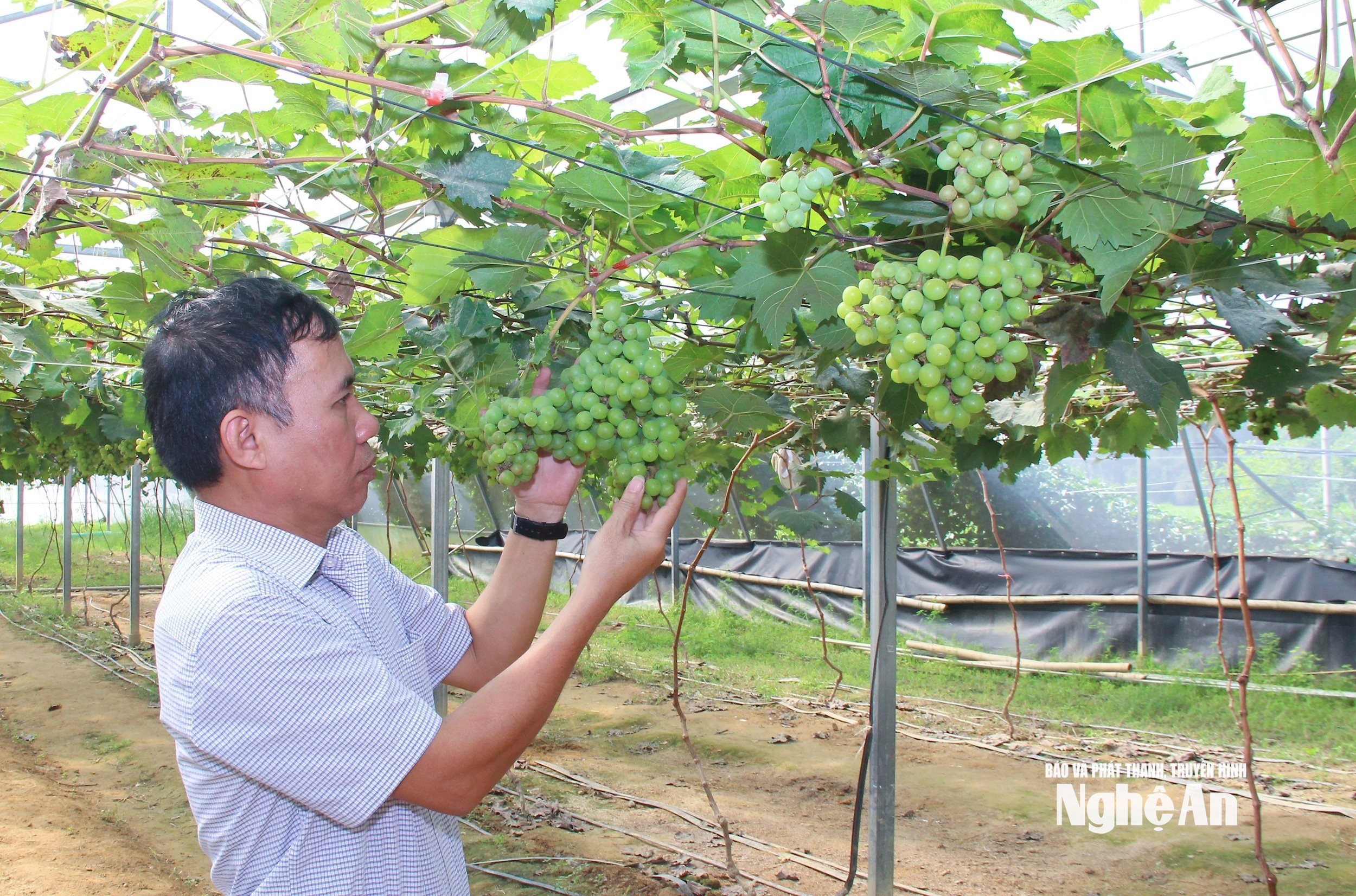
The appraisal and issuance of food safety certificates in the fields of agriculture, forestry and fisheries are also posing many problems.
According to information from the Department of Agriculture and Environment, Nghe An province currently has about 24,659 agricultural, forestry and fishery production and business establishments, of which the province manages 1,792 establishments; the district and commune levels previously managed 22,867 establishments (mainly initial production establishments subject to signing commitments).
The number of establishments granted Food Safety Certificates in the whole province is 1,868/4,766 establishments, reaching 39.2%, of which the provincial level has granted 1,556/1,625 establishments, reaching 95.8%; the district level previously granted 312/3,141 establishments, reaching 9.9%.
Along with that, the number of establishments that signed food safety commitments for the provincial level reached 100%, while the number at the district and commune levels was previously very low, only reaching 18.5%. This is a loophole in the management of food safety and hygiene.
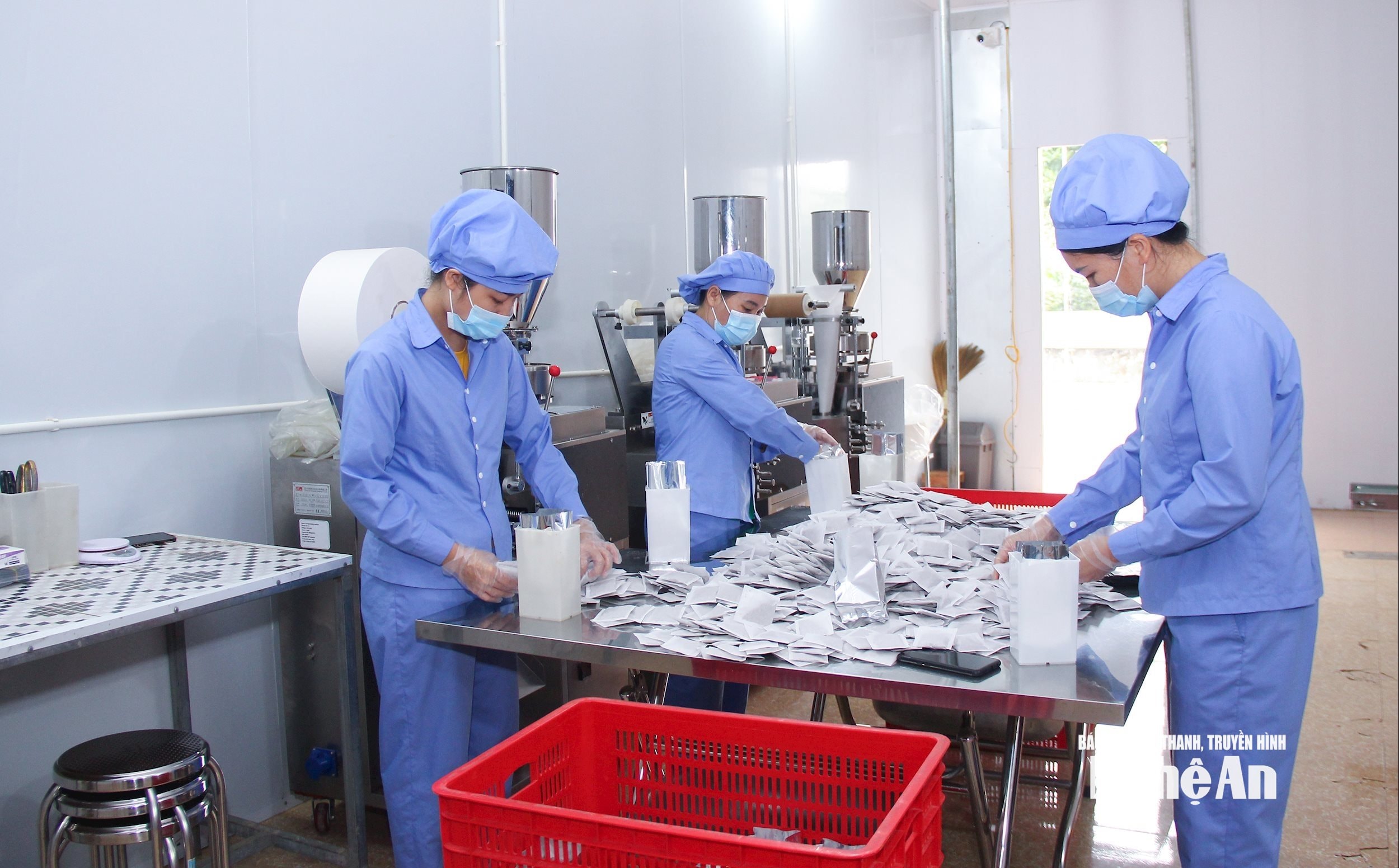
The reason, as pointed out by the Director of the Department of Agriculture and Environment of Nghe An - Mr. Hoang Quoc Viet, is that some district-level People's Committees have not paid attention in the past, on the one hand, they do not have specialized staff and they mainly hold concurrent positions, so they have not paid due attention to food safety management; while most of the production facilities are small-scale, with rudimentary infrastructure, it is difficult to meet the conditions for granting certificates. For livestock, crop and aquaculture facilities that are required to be granted food safety certificates, there are quite a few, mainly households that have to sign food safety commitments.
The granting of codes for growing areas and the construction of livestock facilities that meet VietGAP, GlobalGAP, and organic standards are still too modest.
The whole Nghe An province has just granted 118 codes for domestic growing areas with an area of over 913 hectares; built and maintained 92 disease-safe facilities and met safety standards in livestock farming activities; supported the construction of 54 barcodes; designed and provided 206 QR codes for 157 agricultural, forestry and fishery production facilities.
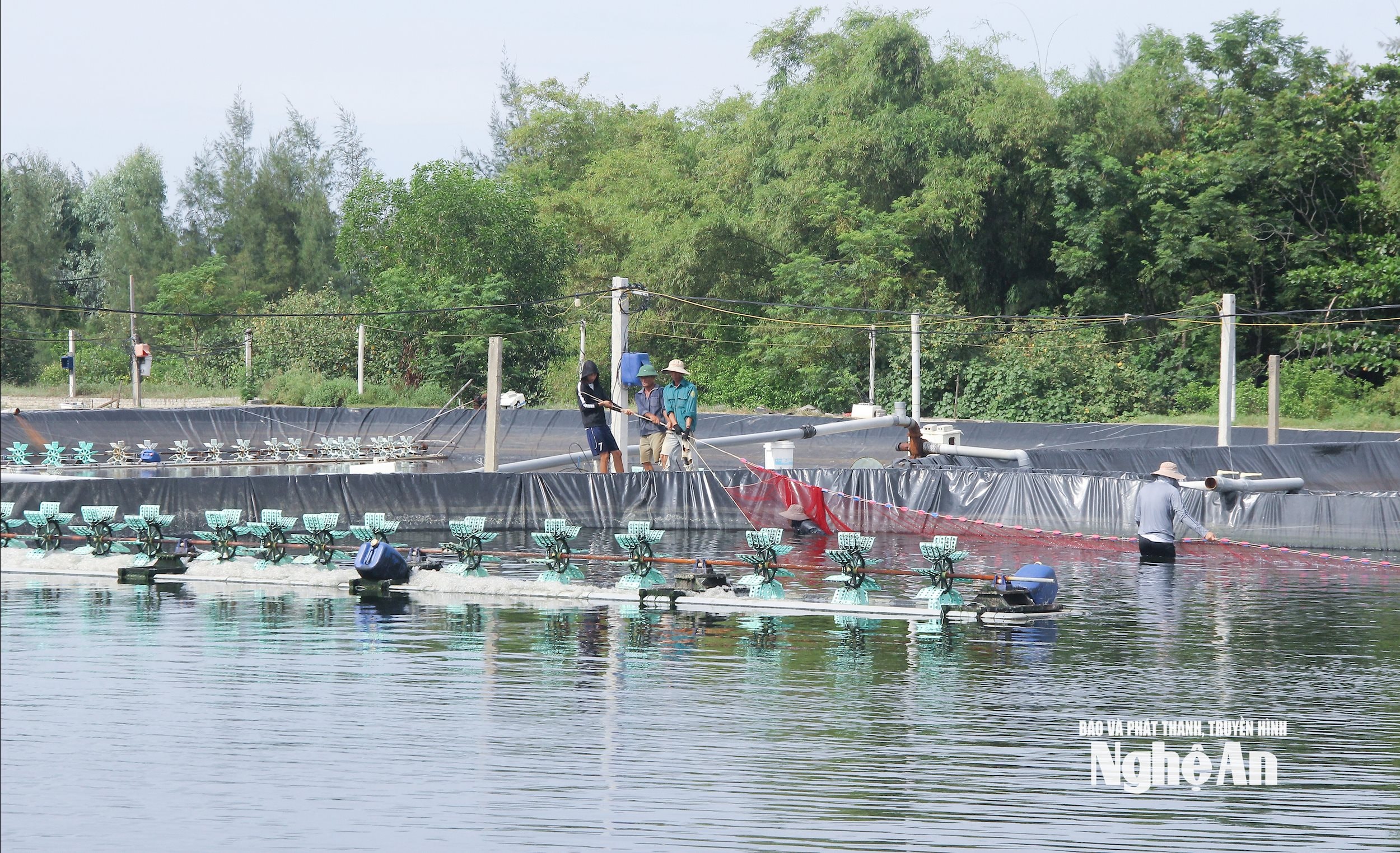
Many solutions need to be focused on
From the above reality, many strong solutions have been proposed by all levels and sectors. Accordingly, it is necessary to strengthen inter-sectoral inspection, strictly handle, even prosecute and conduct mobile trials to deter violations of food safety.
In particular, the management of plant protection drugs needs to be tightened, both strictly controlling import sources and guiding farmers to use plant protection drugs safely and effectively according to the "4 principles", combined with increased processing and use of alternative biological and organic products. In parallel, there are proactive plans to prevent and control pests and minimize the use of toxic chemicals.
One of the key solutions to ensure food safety in the agricultural sector is to organize the issuance of certificates and sign food safety commitments for 100% of slaughterhouses, growing areas, and breeding areas in the province.
Comrade Hoang Quoc Viet - Member of the Provincial Party Executive Committee, Director of the Department of Agriculture and Environment of Nghe An
Another fundamental solution is to change consumer habits, encouraging people to choose products with clear origins, certified by VietGAP, GlobalGAP, and organic. Only when consumers create pressure, will the market promote clean production.
Director of the Department of Agriculture and Environment Mr. Hoang Quoc Viet affirmed: The industry will resolutely promote the issuance of Certificates and signing of commitments to 100% food safety for slaughterhouses, growing areas, and breeding areas; at the same time, continue to advise the Provincial People's Council to issue policies and measures to support conditions for safe food production, including facilities, equipment, production processes according to VietGAP, GlobalGAP, HACCP, ISO, organic...
An important focus is to reorganize production, reduce retail, develop linkage chains, build concentrated raw material areas, apply high technology and electronic diaries to manage from source to table.
In particular, it emphasizes the need for strong decentralization to commune-level authorities, linking the responsibility of leaders to food quality and safety management. This is considered the key to "plugging the loophole" in management at the grassroots level, where daily production and business activities are directly supervised.

Immediately after the questioning session, based on the conclusion announcement of the Provincial People's Council, the Department of Agriculture and Environment issued 4 documents directing and urging the strengthening of management of agricultural materials quality and food safety. These documents clearly state the tasks and responsibilities of each level, unit and locality, aiming to thoroughly rectify the situation of lax management. Along with that, communication solutions, improving farmers' knowledge on safe farming, integrated pest management, and the use of plant protection drugs according to the principles of safety and effectiveness were also strongly implemented.
Food safety is not only the right of consumers, but also a vital factor for the brand of Nghe An agricultural products. If an agriculture lacks transparency, dirty food will exist, losing the trust of the market and reducing competitiveness.
Therefore, the Provincial People's Council's request for all levels and sectors to pursue responsibility to the end is a necessary and timely step. More importantly, the change must be measured by actual results: the rate of certified facilities increases, safe growing areas expand, and clean products are trusted by consumers.
This is a long journey, requiring the synchronous participation of the entire political system, close supervision of the People's Council, determination of authorities at all levels and awareness and responsibility of each citizen and each production and business establishment.

